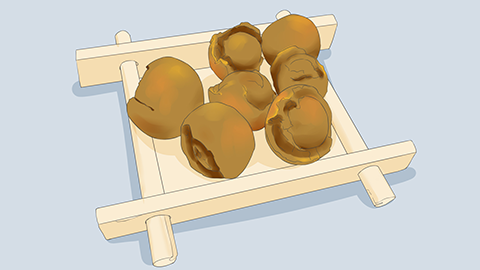What is Bezoar?
Under normal circumstances, bezoar is a calculus formed in the gallbladder, bile duct, or hepatic duct of bovines (Bovidae animals), and it is a traditional Chinese medicinal material with high therapeutic value. Artificial bezoar is also available as an alternative. Detailed explanation is as follows:

Natural bezoar forms under specific conditions and is scarce in supply, thus making it quite valuable. When inflammation or metabolic abnormalities occur in the bovine biliary system, components such as cholesterol and bilirubin in the bile deposit and coagulate gradually, forming stone-like substances known as natural bezoar. Natural bezoar typically appears oval or nearly spherical, with a surface color ranging from yellowish-red to brownish-yellow. It has a crisp and fragile texture with layered striations on the fractured surface. It emits a fresh aroma and has a slightly bitter but sweet aftertaste.
Artificial bezoar, on the other hand, is a synthetic substitute produced using cow bile powder, cholic acid, bilirubin, and other ingredients according to the composition of natural bezoar. It has a higher yield and more affordable price, and can substitute natural bezoar in most cases. Both natural and artificial bezoar possess effects such as clearing heat and detoxifying, and calming the nerves. They are commonly used in the preparation of related medicines to relieve specific symptoms.
It should be noted that bezoar is primarily used as a medicinal ingredient, not as a common foodstuff. It should be applied appropriately under the guidance of professionals. Do not arbitrarily use or consume products containing bezoar on your own.








